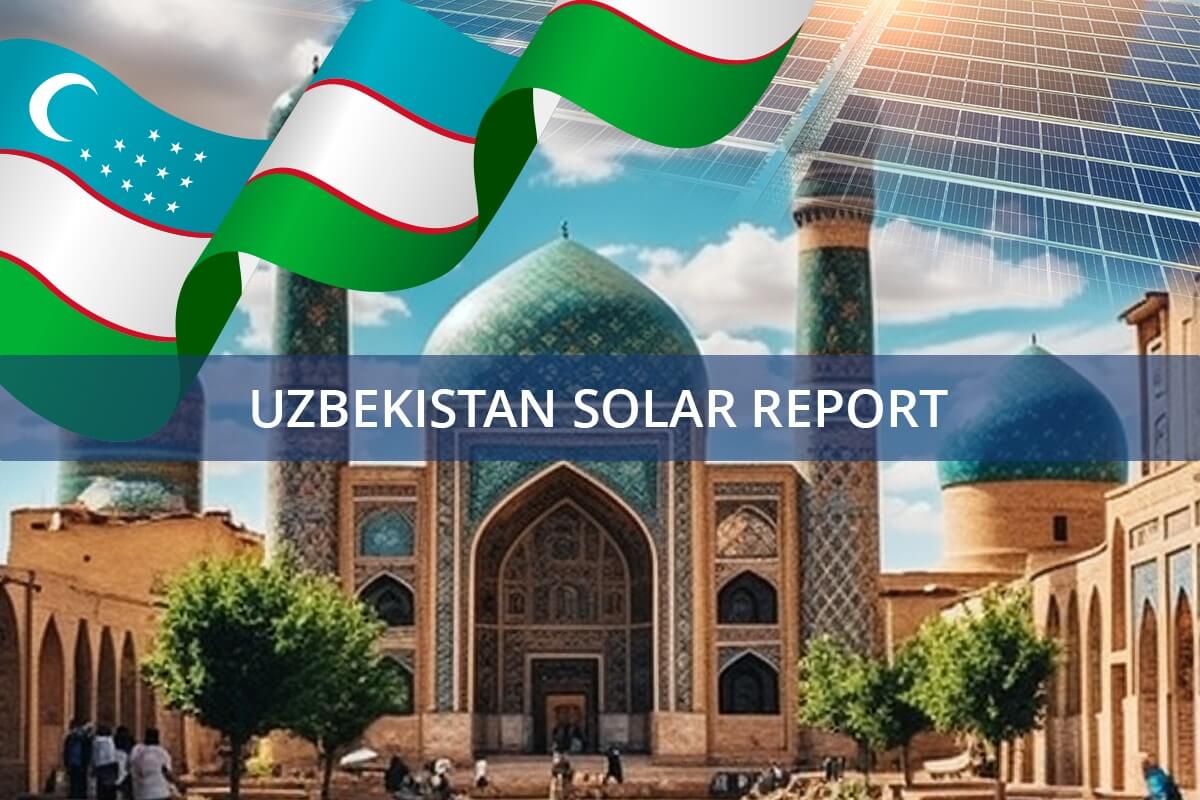Uzbekistan is set to bolster its renewable energy capacity with the launch of a 191.6 MW solar power plant by mid-2025, as part of its ambitious goal to achieve 25% renewable energy in its electricity mix by 2030. This project, which involves a consortium of international companies, will significantly contribute to the country’s energy transition and reduce its reliance on fossil fuels.
Uzbekistan solar power project details and timeline
Uzbekistan has awarded a tender for a 191.6 MW solar power plant, a project expected to be operational by mid-2025. This solar initiative is part of the country’s broader strategy to diversify its energy mix, aiming for 25% renewable energy by 2030. The solar power plant will be located in the Tashkent region, with electricity transmission facilitated through a 220 kV substation in the Bostanlyk district.
The project was announced by the Ministry of Energy through a press release on its official website. The solar power plant is expected to begin commercial operations in approximately 18 months, marking a significant step in Uzbekistan’s renewable energy journey.
This solar project is the fourth to be implemented under an ADB-supported program, following similar projects in the Samarkand, Jizzakh, and Namangan regions. The program, which aims to increase Uzbekistan’s solar capacity, has already seen the successful commissioning of solar power plants in these regions.
Consortium partners driving Uzbekistan solar power
The solar power plant will be developed by a consortium of companies, including the Italian company Enel Green Power, Germany’s GE Capital, and Uzbekistan’s Hydro Power Systems. This consortium was selected through an international tender process that began in January 2024, with final offers received by July 10, 2024. The tender process was supported by the Asian Development Bank (ADB), which provided technical assistance to ensure the project’s success.
This partnership between international and local companies highlights the importance of collaboration in achieving global renewable energy goals. Enel Green Power, a leading player in the renewable energy sector, brings its expertise in managing large-scale solar projects, while GE Capital contributes its financial and technological resources. Hydro Power Systems, a local company, ensures the project aligns with Uzbekistan’s energy policies and regulations.
Impact of Uzbekistan solar power on the energy sector
The 191.6 MW solar power plant will significantly enhance Uzbekistan’s renewable energy capacity, contributing to the country’s goal of achieving 25% renewable energy in its electricity mix by 2030. Currently, Uzbekistan relies heavily on fossil fuels, with only 5% of its energy coming from renewable sources. The addition of this solar power plant will help reduce the country’s carbon footprint and decrease its dependence on fossil fuels.
The project is also expected to create jobs and stimulate economic growth in the Tashkent region. The development and operation of the solar power plant will require skilled labor, providing employment opportunities for local communities. Moreover, the plant will contribute to the stability of Uzbekistan’s energy supply, reducing the risk of power shortages and ensuring a reliable source of electricity for businesses and households.
Uzbekistan solar power and renewable energy goals
Uzbekistan has set an ambitious target of reaching 25% renewable energy in its electricity mix by 2030. To achieve this goal, the country is focusing on expanding its solar and wind energy capacity. The government has implemented several policies and programs to attract foreign investment in the renewable energy sector, including tax incentives and streamlined permitting processes.
The country’s renewable energy strategy is supported by international organizations such as the Asian Development Bank and the World Bank, which provide financial and technical assistance for renewable energy projects. These partnerships have been instrumental in helping Uzbekistan overcome the challenges associated with transitioning from fossil fuels to renewable energy.
The 191.6 MW solar power plant project marks a significant milestone in Uzbekistan’s renewable energy journey. With the support of international partners and a strong commitment to sustainable development, Uzbekistan is well on its way to achieving its renewable energy goals. The country’s transition to renewable energy not only contributes to global efforts to combat climate change but also ensures a more sustainable and secure energy future for its citizens.

